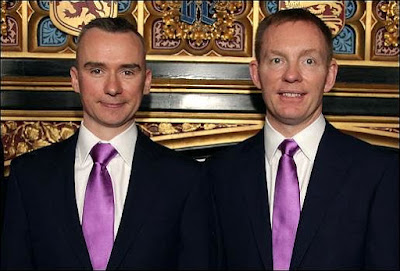I may disagree with what you say, but I will defend to the death your right to say it.
--Voltaire
I have sworn upon the altar of Almighty God eternal hostility towards every form of tyranny over the mind of man.
--Jefferson
Attention, please: the class will now come to order. Take your seats and spit out that damn bubble gum.
Time for a very elementary civics lesson, boys and girls: freedom of speech means you are free to say what you think. Whatever you think.
You are equally free, then, to say out loud and in public that you approve of something, and equally free to say that you disapprove of something.
If your approval extends all the way to love of something, it's okay, you can say that. And if your disapproval extends all the way to hatred of something, that's okay too, you can say that as well.
It does not matter whether anyone else agrees with your approval/love or with your disapproval/hate. It does not matter whether your stated opinion is fashionable or unfashionable with any particular group. It does not even matter whether you are right or wrong.
Freedom of speech means you are free to say whatever you think. Even if what you think offends someone else's idea of what is right or wrong.
Because freedom of speech - which of course includes not merely oral utterances but also any form of written utterance as well, and even silent demonstrations of opinion - is another facet of an even larger, more important concept that we call freedom of belief, aka freedom of conscience.
A free man, or woman, - unlike a slave - has the inalienable right to think whatever he pleases, believe whatever he pleases, and express whatever he pleases. Is that point very clear? Free people can think and say whatever they want. Slaves and prisoners and children cannot.
Which is why totalitarian regimes always clamp down first on freedom of expression; once that is taken away, the process of converting people to slaves of the State is halfway done.
Continued after the jump . . .


































































